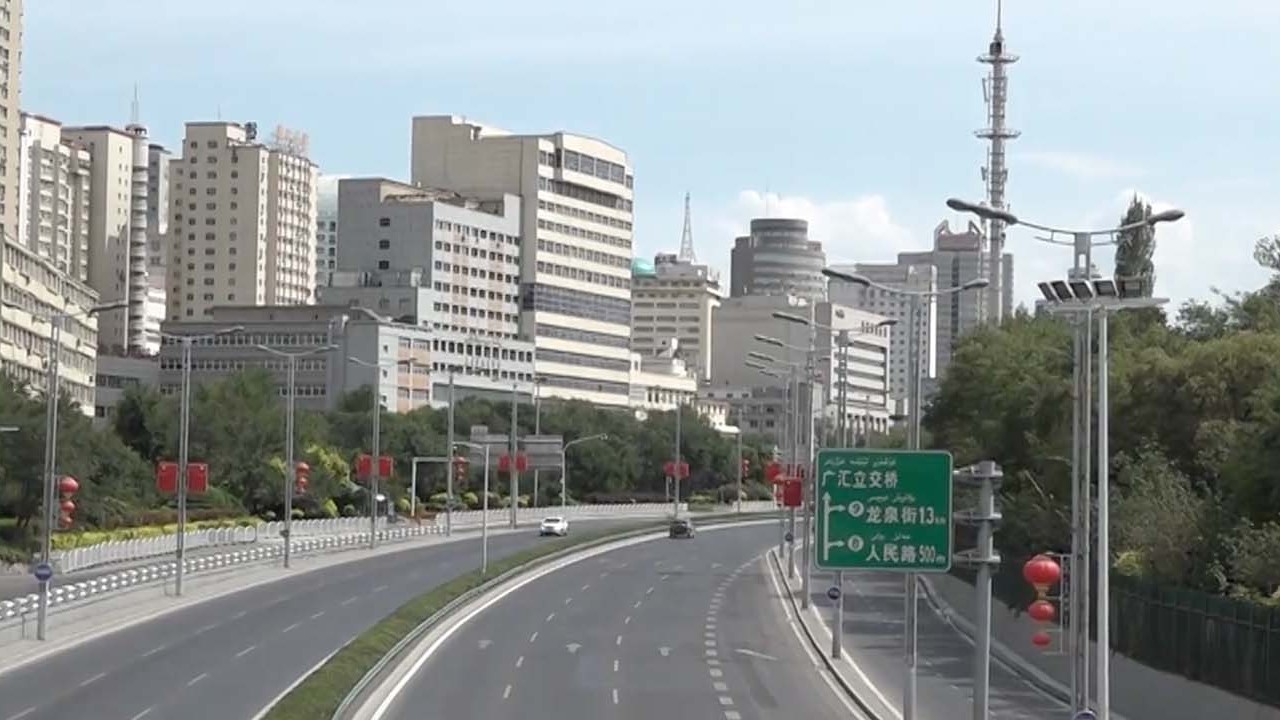
Xinjiang probe into claim Covid-19 patient died after being neglected at quarantine centre
- A woman claiming to be the man’s daughter said his appeals for help at quarantine facility went unanswered until it was too late
- Korla authorities say they are investigating the allegations, which prompted many Xinjiang residents to share their own stories on social media
The man, identified only by his family name Guo, tested positive for the virus and was sent to an isolation facility where his condition worsened, according to a social media post written by a woman claiming to be his daughter.
In the post, the woman from Shenzhen in Guangdong province, southern China, said Guo was neglected, despite complaining about breathing difficulties and loss of consciousness.
He called an ambulance but none was sent, while in a similar call to the police Guo was told he was fine as he could still sit up, according to the post, which was widely circulated on Chinese social media.
The Korla government said on Wednesday afternoon that investigations by health, police and party disciplinary authorities were ongoing.
No deaths from the virus have been officially recorded this month in Xinjiang.
The woman’s social media post said that, on the day before he died, Guo lost consciousness but the facility’s doctors and leaders refused to send him to a proper hospital. He was eventually transferred after losing consciousness again, but died the next morning, she said.
“Our whole family is in grief and grieving. I have a lot of doubts and don’t understand all the experiences my dad had in the quarantine site for eight days, but no one is telling us the truth even now. Dad was 66 years old,” she wrote.
Locked down and running out of food: Xinjiang residents vent on social media
The post prompted a wave of outrage and empathy on social media, with people in Xinjiang sharing their own experiences of lockdown and other Covid-19 controls.
Korla residents have been complying with “static management” measures – a euphemism for lockdown – since mid-August. Some users of social media platform Weibo commented, “Three months on, when will the closure be lifted?”
Others publicised their dire circumstances, including a scarcity of food, with videos and stories on Weibo and Douyin, the Chinese equivalent of TikTok, despite risking their livelihoods by violating severe communication restrictions. Many of their contributions appeared to be blocked soon after they were posted.
“I have no income. My small restaurant has been out of business and I naively applied for only three months of loan extension,” a Xinjiang woman wrote on Weibo.
“I have overdue debts for my car loan and credit cards but I still need to buy baby milk formula for my [18-month]-old baby. I have stopped paying my social insurance and I feel I won’t be able to afford tampons soon,” she said.
Coronavirus: lockdown sparks desperate measures in Chinese textile hub
On Tuesday night, deputy head of the Xinjiang Centre for Disease Control and Prevention Sun Jingxuan told a press conference that some areas – including Turpan, Tacheng and Ghulja – were gradually returning to normal.
But the epidemic prevention and control situation in the region was still dire and complex, especially in the capital Urumqi, which was still in a critical period, he said.
Outbreaks have continued to flare across China, with 8,824 local infections reported nationwide on Thursday. They included 2,555 in the southern manufacturing hub of Guangzhou. Despite its stringent antivirus measures, Xinjiang – home to 25.8 million people – reported 689 local infections.


